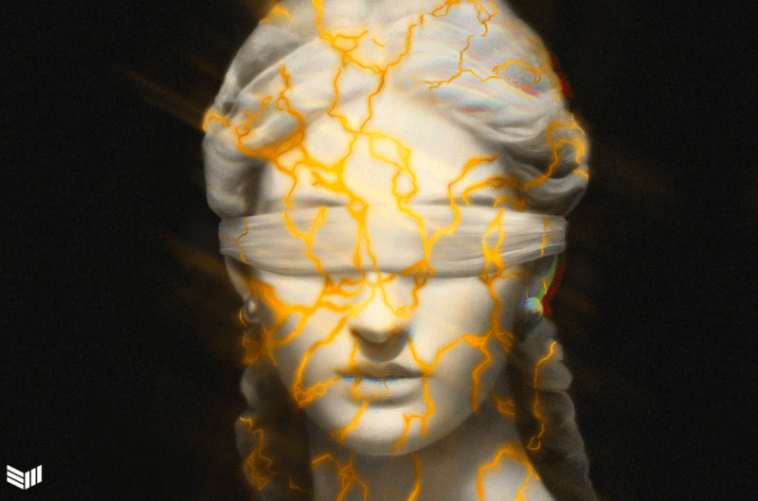Prosecution against WikiLeaks founder Julian Assange is a cruise missile against a free internet, and Bitcoin could be next.
An Espionage Act prosecution against Julian Assange isn’t just an attack on the First Amendment. It’s a cruise missile against a free internet, and Bitcoin could be next.
I never thought my older brother Julian Assange would need my help.
I’ve always looked up to him. He is fearless, smart, nurturing and protective. No matter what was going on in his world — whether he was travelling the world for groundbreaking publications, living under house arrest with an ankle bracelet or seeking asylum in the Ecuadorian Embassy — he could listen to my problems and offer (sometimes unsolicited) free advice. When I needed him, he found a way to be there for me.
In August 2019, I went to see Julian in HM Prison Belmarsh, and I realized something had changed. After years of what United Nations representatives have formally classified as psychological or “no touch torture,” the effect on him was more visible than ever. I realized that now, it was my turn to help my brother.
We spoke about things like the ubiquitous COVID-19 response, when our father was going to slow down and the distraction and consequences of QAnon. However, a favorite topic of his was Bitcoin and cryptocurrency.
WikiLeaks and Bitcoin were both born of the cypherpunk movement. And it was in those embryonic days of the Cypherpunks Mailing List that Julian began his long intellectual interest and curiosity in Bitcoin. Julian participated in discussions and debate that cemented the cypherpunk movements values around freedom, privacy, mastery of technology and codified curiosity. Most of the suspected creators and earliest backers of Bitcoin belonged to or were inspired by this community of thinkers and tinkerers.
In 2010, after publishing tranches of material on Bush- and Obama-era wars in Iraq and Afghanistan, rules of engagement, Guantanamo Bay detainee files and U.S. diplomatic cables, WikiLeaks was subjected to an extra-legal international banking blockade. Under intense political pressure, Visa and Mastercard refused to process donations and banks and PayPal closed WikiLeaks’ and Julian’s accounts.
It was under these circumstances that Satoshi (whoever they may be) made a plea to WikiLeaks to hold off on accepting this nascent digital currency for donations and thereby forgoing the attention that it could draw. Satoshi feared that Bitcoin would not be able to survive if the protocol faced the same scrutiny and political pressure that WikiLeaks was dealing with. Julian and WikiLeaks heeded Satoshi’s calls.
After giving bitcoin six months to strengthen, in June 2011 WikiLeaks became the first large organization to adopt Bitcoin. That alignment saw bitcoin realize part of its founding principal as a financial tool, free from centralized political and institutional control. Over the last 10 years, WikiLeaks has used its bitcoin donations to fend off attacks and blockades, both illegal and legal, by governments and corporations, to overcome the extra-legal banking blockade and be able to keep its archive online, continue to publish and remain censorship resistant.
Throughout this time, it has also spoken out to defend Bitcoin against confidence scams such as Craig S. Wright’s attempts to impersonate Satoshi by forging digital signatures and documents. I wonder, if Julian were free today, what he would have to say about Wright’s latest efforts to use the courts against Bitcoin developers or how he would be fighting back against the FATF customer data sharing rules or FinCEN guidance on disclosing offshore crypto holdings.
Bitcoin and WikiLeaks are inherently anti-establishment. Both projects ask us to temper our faith in people and institutions and rely instead on publicly-verifiable information, on the basis that a better-informed population creates a freer and fairer society — it has championed those who share these ideals. “The hornets,” as Satoshi referred to them, have not been able to take down Bitcoin or WikiLeaks. They have, however, used other tools at their disposal. A decade of individual reputational attacks, plots to poison Julian and target his newborn baby, abuse of process in order to restrict his movement and speech.
In April 2019, my brother was arrested under breach of bail violations and U.S. 1917 Espionage Act charges. Despite having served the maximum sentence of 50 weeks for the bail charge, and successfully winning his extradition case at the U.K. lower court on January 4, 2021 — one day after Bitcoin’s 12th birthday — Julian has now been locked up in Belmarsh prison on the outskirts of London for two years, separated from his fiancé and two young children during a global pandemic.
The U.K. Magistrate only rejected the extradition request due to Julian’s history of clinical depression and because of the extreme U.S. prison conditions he would face if extradited. The judge concluded that extraditing him would be tantamount to prescribing the death penalty. A few days later, he was refused bail and now awaits an appeal hearing in the High Court of the U.K.
On all the other points of law, Julian lost. Undoubtedly, this sent a chilling signal to the press in the U.K. and around the world: If you publish truthful information anywhere in the world regarding wars, mass surveillance or political corruption that the U.S. government doesn’t want us to know, then you could be extradited to face charges on U.S. soil.
Editors around the world now have to consider what they are publishing and that their publisher or reporters may also be indicted under the Espionage Act like Julian has been. This threat is why we have seen the editorial departments of many large news organizations voice their rejection of Julian’s prosecution and consensus among the free press and human rights organizations around the world, calling for an end to this prosecution.
But it’s not just journalists and publishers who are in trouble. Those not afforded the protection of media corporations — bloggers, podcasters, YouTubers — are all on the chopping block. Most concerning for Bitcoiners, extradition treaties that were put in place in the wake of 9/11 to make it easier to extradite terrorists back to the U.S. are now being used against technologists who run afoul of U.S. interests. Autonomy’s Mike Lynch in the U.K. or Huawei’s Meng Wanzhou in Canada. And, for Julian, the fight is not yet over.
The U.S. appeal could be heard by the U.K. high court as early as May 2021. Another rejection of the extradition in the high court will be heard loud and clear by the U.S. Department of Justice and will be a rejection of censorship, regulations and the clandestine attacks that Julian has suffered over the last 10 years.
Bitcoin and WikiLeaks are the utilities of a free internet. They are necessary for it to develop and thrive in a meaningful way. Both born out of the cypherpunk movement, Bitcoin and WikiLeaks have stayed true to their visions of decentralization and transparency. The power of the cryptocurrency community has grown exponentially. With that power comes a responsibility to defend Bitcoin’s core beliefs in the face of looming institutionalization.
My hope is that the rational technologists who made big bets against the establishment come together to see the benefit of defending one of their brothers and their own cypherpunk roots. Like it did in 2011 when it was adopted by WikiLeaks, Bitcoin has another opportunity to show its metal to the world. A win for Julian Assange will demonstrate to the waves of corporate interests and regulators that the cryptocurrency community is willing to use its power to stand up for what it believes in.
The prosecution of Julian Assange can be stopped, but we need your help. An easy way you can do something is by donating as much bitcoin as you can afford through our portal at the below link. Our goal is to raise 40 bitcoin to pay for the appeal and associated campaigning. Donations are totally legal/tax deductible and are made through the Germany-based not-for-profit Wau Holland Foundation.
Donate here: supportassange.wauland.de
This is a guest post by Gabriel Shipton. Opinions expressed are entirely their own and do not necessarily reflect those of BTC Inc or Bitcoin Magazine.





 BTC-USD
BTC-USD  ETH-USD
ETH-USD  LTC-USD
LTC-USD  XRP-USD
XRP-USD